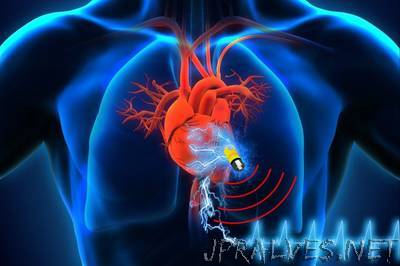
“Researchers from UCLA and the University of Connecticut have designed a new biofriendly energy storage system called a biological supercapacitor, which operates using charged particles, or ions, from fluids in the human body. The device is harmless to the body’s biological systems, and it could lead to longer-lasting cardiac pacemakers and other implantable medical devices. The UCLA team was led by Richard Kaner, a distinguished professor of chemistry and biochemistry, and of materials science and engineering, and the Connecticut researchers were led by James Rusling, a professor of chemistry and cell biology. A paper about their design was published this week in the journal Advanced Energy Materials. Pacemakers — which help regulate abnormal heart rhythms — and other implantable devices have saved countless lives. But they’re powered by traditional batteries that eventually run out of power and must be replaced, meaning another painful surgery and the accompanying risk of infection. In addition, batteries contain toxic materials that could endanger the patient if they leak. The researchers propose storing energy in those devices without a battery. The supercapacitor they invented charges using electrolytes from biological fluids like blood serum and urine, and it would work with another device called an energy harvester, which converts heat and motion from the human body into electricity — in much the same way that self-winding watches are powered by the wearer’s body movements. That electricity is then captured by the supercapacitor.”
